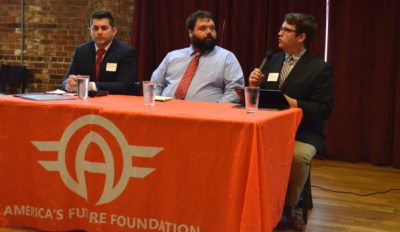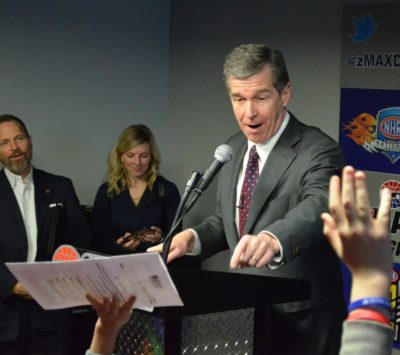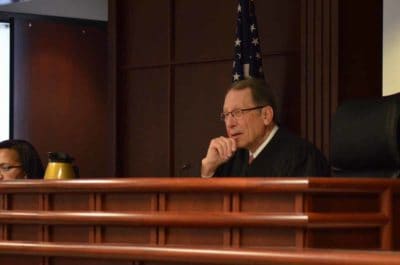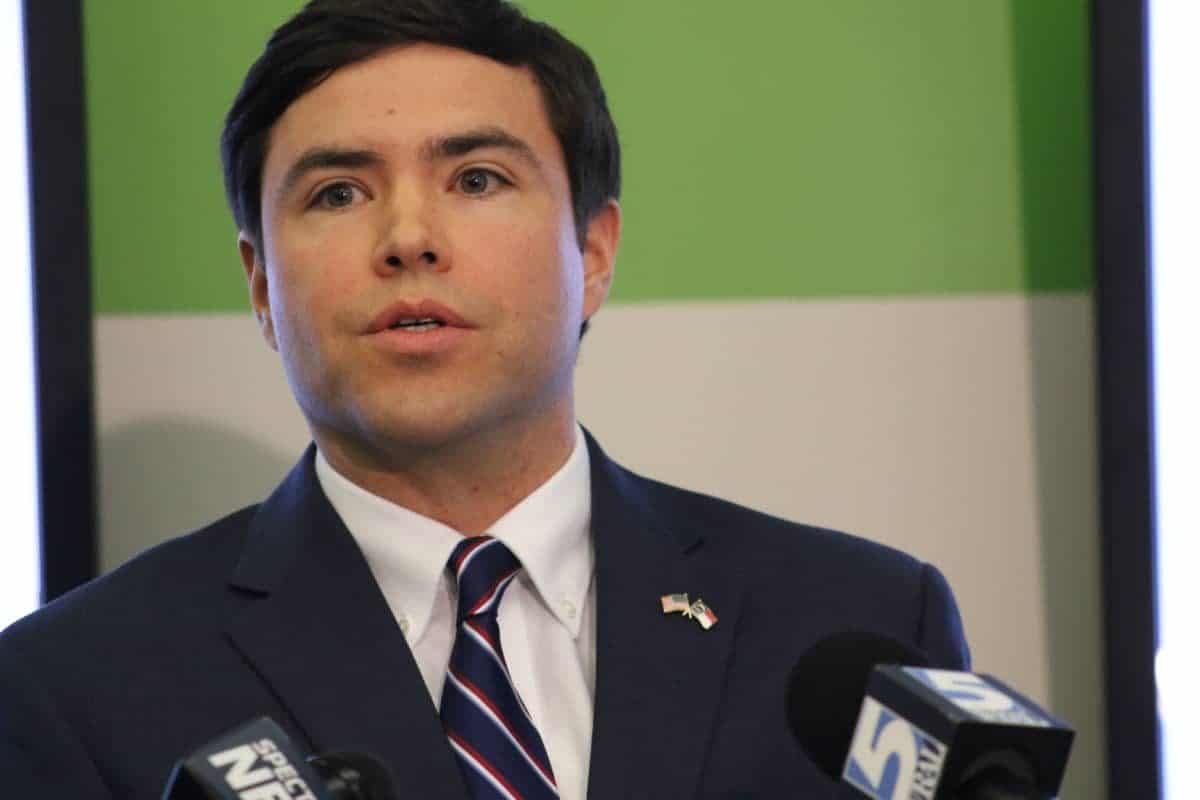
State Superintendent of Public Instruction Mark Johnson hasn’t yet made it known whether he will run again for his position in 2020. But at least one other Republican has said she is interested in the role if he doesn’t pursue it.
Catherine Truitt, chancellor of WGU North Carolina, said she is interested in being state superintendent, but not if it means challenging Johnson.
“I don’t know that I think primarying an incumbent is a good idea,” she said. “If the current state superintendent decides not to run for state superintendent for whatever reason, I would love to announce my candidacy.”
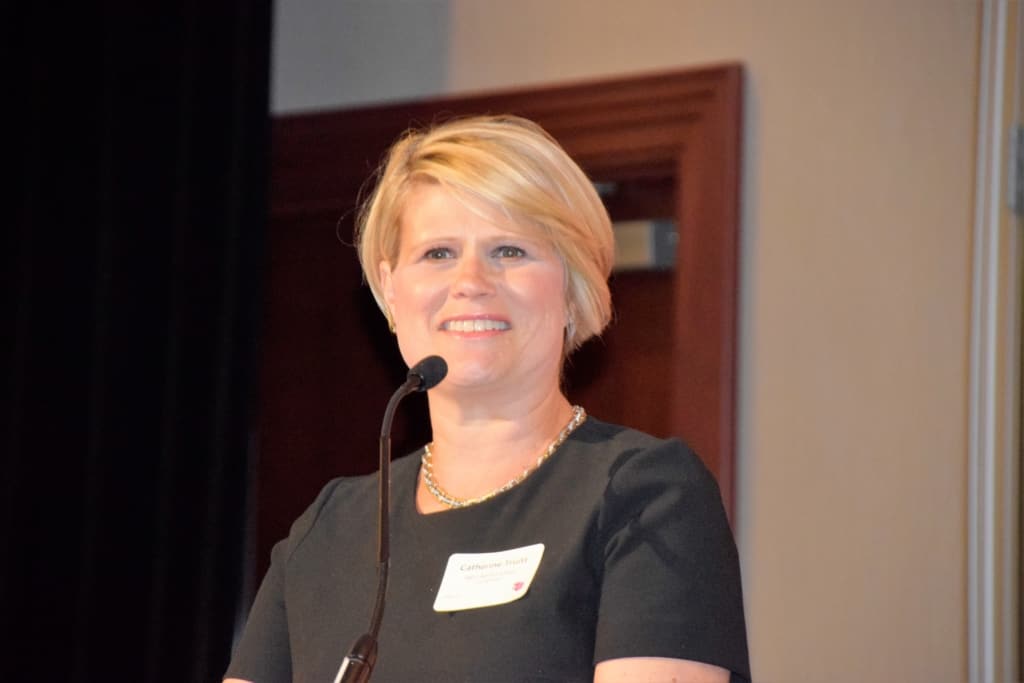
She said she has spoken with Johnson, but that he hasn’t made either a public or private announcement about his intentions.
“I don’t know what his plans are,” Truitt said.
Truitt is a former teacher, turnaround coach, associate vice president of University and P-12 Partnerships at UNC General Administration, and former senior education advisor to Republican Gov. Pat McCrory.
Johnson, who took his position from Democrat June Atkinson in the 2016 election, has had ups and downs during his tenure. The beginning of his term was marked by a legal battle and tension with the State Board of Education over new powers granted him by the North Carolina General Assembly. Recently, controversy over the state’s pick of a new reading diagnostic tool, Istation, has also put Johnson on the defensive.
But he also undertook a statewide listening tour, visiting districts around the state to get a sense for the education landscape and to see what innovations schools were using. In addition, he worked with the legislature to get money for teachers to buy their own classroom supplies, oversaw an audit and reorganization of the state Department of Public Instruction, and used unspent state money to buy iPads for K-3 reading teachers.
He told EducationNC yesterday that he isn’t focused right now on whether or not he will run again.
“Right now, my focus is on back to school, and then we are quickly approaching the one-year anniversary of Hurricane Florence,” he said. “Those are my two priorities.”
He said he will turn his attention to the election in a few months.
“Obviously as we get closer to the end of this year, I’ll have to make my plans known,” he said.
Truitt said that her work in classrooms, on education policy, at the UNC System, and now at WGU have given her experiences that would translate well to the role of state superintendent.
“I think that these experiences and institutional knowledge, along with my relationships at the legislature and with the State Board, position me uniquely,” she said.
Truitt said she would be interested in the job because she thinks public education in North Carolina is at a crossroads.
“For the first time, people in the education community are recognizing that we need a 0-64 [years old] approach to education. And we need a 0-64 approach to education because we have a skills gap in our state and a shortage of highly-skilled folks during a time when we have a war for talent,” she said.
She added that even though teachers in the state are working harder than ever, there are still districts where only a small percentage of students graduate from high school ready for college.
She said that because these students aren’t ready, some of them have to leave college without finishing and burdened with student debt. She referenced a just-released report from the Center for Responsible Lending that said North Carolina has the second biggest increase in student debt in the nation over the past decade. The report states that 1.2 million people in North Carolina have $44 billion worth of student loan debt.
Another reason Truitt said she is well-suited to be state superintendent is because having worked in classrooms for 10 years, she can relate to the people in the trenches.
“I understand what it feels like to be a teacher and have it feel like you’re having things done to you by policymakers and those in the education community who are not in the classroom,” she said.
Truitt’s education credits include public high schools in Seattle, Washington and Johnston County, North Carolina; a private school in Chicago that she founded; and a stint as an educator in the British school system. After her time in the classroom, she went to work as a turnaround coach with the International Center for Leadership in Education in 2012, where she spent three years.
A number of candidates have already announced their plans to run for state Superintendent of Public Instruction as Democrats.
The list includes:
- Jen Mangrum, a University of North Carolina at Greensboro School of Education associate professor who unsuccessfully took on Senate President Pro Tempore Phil Berger, R-Rockingham, in last year’s election.
- Michael Maher, assistant dean of professional education at North Carolina State University.
- Keith Sutton, vice chair of the Wake County Board of Education.
- James Barrett, a school board member in Chapel Hill-Carrboro.
- Amy Jablonski, leadership development and research project director at SWIFT Education Center (and formerly of DPI).
Correction: This article originally listed Jen Mangrum as an assistant professor. She is an associate professor. It also listed the University of North Carolina at Greensboro as the University of Greensboro. That has been corrected as well.


